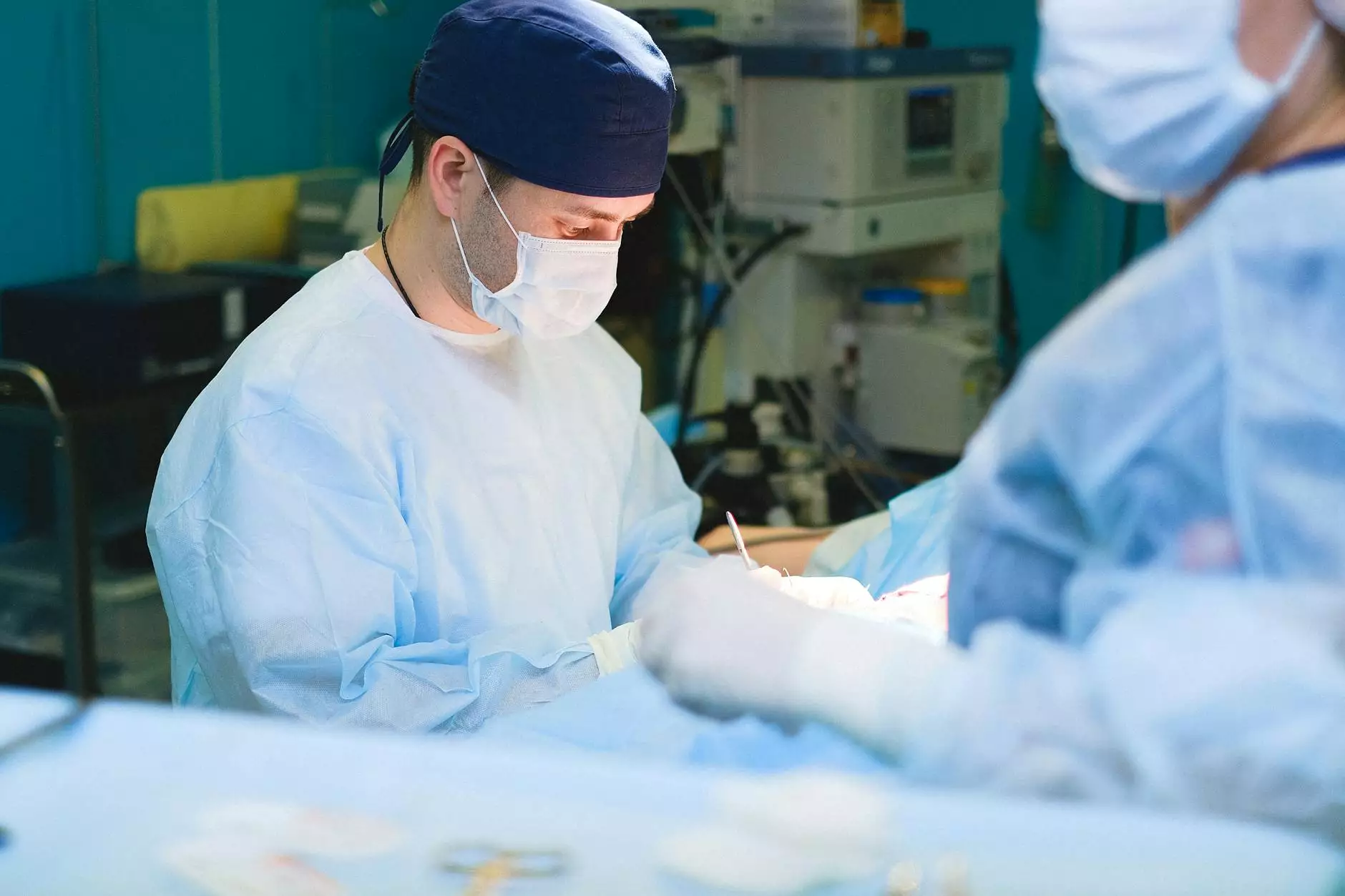Understanding Sleeve Gastrectomy Surgery for a Healthier Life

Sleeve gastrectomy surgery, also known as vertical sleeve gastrectomy, is a popular and effective weight-loss surgery designed to help individuals suffering from obesity. This procedure involves the removal of a significant portion of the stomach, which leads to a reduced capacity for food intake and enhanced feelings of satiety. At Clinichealthbeauty.com, we provide comprehensive information on this transformative procedure, diving deep into its benefits, risks, and overall impact on health.
What is Sleeve Gastrectomy Surgery?
Sleeve gastrectomy is a form of bariatric surgery that reduces the size of the stomach to help patients lose weight. During the procedure, approximately 80% of the stomach is removed, leaving a narrow, sleeve-like structure. This smaller stomach significantly reduces the amount of food one can consume at a time and alters the hormones associated with hunger, leading to a decrease in appetite.
The Procedure Explained
The surgery is typically performed laparoscopically, which means that it involves small incisions and the use of special instruments, minimizing recovery time and scarring. Here’s a step-by-step overview of the procedure:
- Anesthesia Administration: Patients are given general anesthesia to ensure they are comfortable and pain-free during the surgery.
- Incision Creation: Small incisions are made in the abdomen to insert laparoscopic instruments.
- Stomach Reduction: A portion of the stomach is removed, leaving a smaller, tubular stomach.
- Closing the Incisions: The incisions are closed using sutures or surgical tape.
Why Choose Sleeve Gastrectomy Surgery?
Patients choose sleeve gastrectomy for several reasons, often citing the following benefits:
- Significant Weight Loss: A substantial amount of weight can be lost within the first year post-surgery.
- Improved Health Conditions: Many patients experience remission or improvement in obesity-related conditions such as type 2 diabetes, hypertension, and sleep apnea.
- Minimal Hospital Stay: The procedure is performed laparoscopically, allowing for a shorter hospital stay and recovery time.
- Changes in Appetite: The restructured stomach and hormonal changes lead to reduced hunger and cravings, making it easier to adhere to a healthy diet.
Success Stories
Many individuals have successfully transformed their lives through sleeve gastrectomy surgery. Patients often report not only weight loss but also enhanced energy levels, improved mobility, and a better quality of life. Here are a few inspiring examples:
"After my sleeve gastrectomy, I lost over 50 pounds in just six months! I never felt hungry, and now I can enjoy activities with my family that I couldn't before." - Sarah T.
"My health has improved tremendously. I no longer need medication for my diabetes, and my overall energy has skyrocketed!" - John D.
Who is an Ideal Candidate for Sleeve Gastrectomy Surgery?
Not everyone is a suitable candidate for sleeve gastrectomy. Ideal candidates generally include:
- Individuals with a body mass index (BMI) of 40 or higher.
- Those with a BMI of 35 or higher who have obesity-related health conditions.
- Individuals who have attempted weight loss through diet and exercise without success.
- Patients who are committed to making long-term lifestyle changes.
Consultation and Evaluation Process
Before undergoing sleeve gastrectomy surgery, candidates must have a thorough evaluation that includes:
- Comprehensive medical history review.
- Physical examination.
- Assessment of psychological readiness.
- Discussion of dietary habits and lifestyle choices.
Risks and Considerations
As with any surgery, sleeve gastrectomy comes with potential risks. Understanding these can help patients make informed decisions:
- Post-Surgery Complications: These can include bleeding, infection, and leaks in the stomach.
- Nutritional Deficiencies: With a reduced stomach size, patients may struggle to consume enough nutrients, potentially leading to deficiencies.
- Weight Regain: Without adherence to lifestyle changes, some patients may regain weight after achieving initial success.
- Changes in Body Image: Some patients may struggle with the emotional aspects of rapid weight loss.
Preparing for Sleeve Gastrectomy Surgery
Preparation is crucial for a successful outcome. Patients should:
- Engage in a pre-operative diet to shrink the liver.
- Attend education sessions about surgical procedures and lifestyle changes.
- Establish a support system of friends, family, or support groups.
Post-Surgery Life: What to Expect
After sleeve gastrectomy surgery, patients can expect a significant adjustment period. Here are some key aspects of post-surgery life:
Dietary Changes
Diet plays a vital role in recovery and long-term weight management:
- Liquid Phase: Initially, patients are on a liquid-only diet for about two weeks.
- Pureed Foods: Gradually, pureed foods can be introduced, transitioning to soft foods and eventually normal foods.
- Focus on Protein: High-protein foods are encouraged to support healing and muscle maintenance.
Exercise and Activity
Incorporating exercise is critical for maintaining weight loss and enhancing overall health:
- Walking: Start with gentle walks and gradually increase intensity.
- Strength Training: Incorporate strength activities to build muscle mass.
- Avoid High-Impact Activities: In the initial months, avoid heavy-impact exercises.
Conclusion: A New Lease on Life
Your journey with sleeve gastrectomy surgery can lead to significant personal transformation. Whether you're seeking to improve your health, regain energy, or enhance your quality of life, this procedure opens a pathway to a healthier future. At Clinichealthbeauty.com, we are committed to guiding you through every step of your weight-loss journey, ensuring you are equipped with the knowledge and support you need to succeed. Embrace the possibility of a healthier, happier you!



